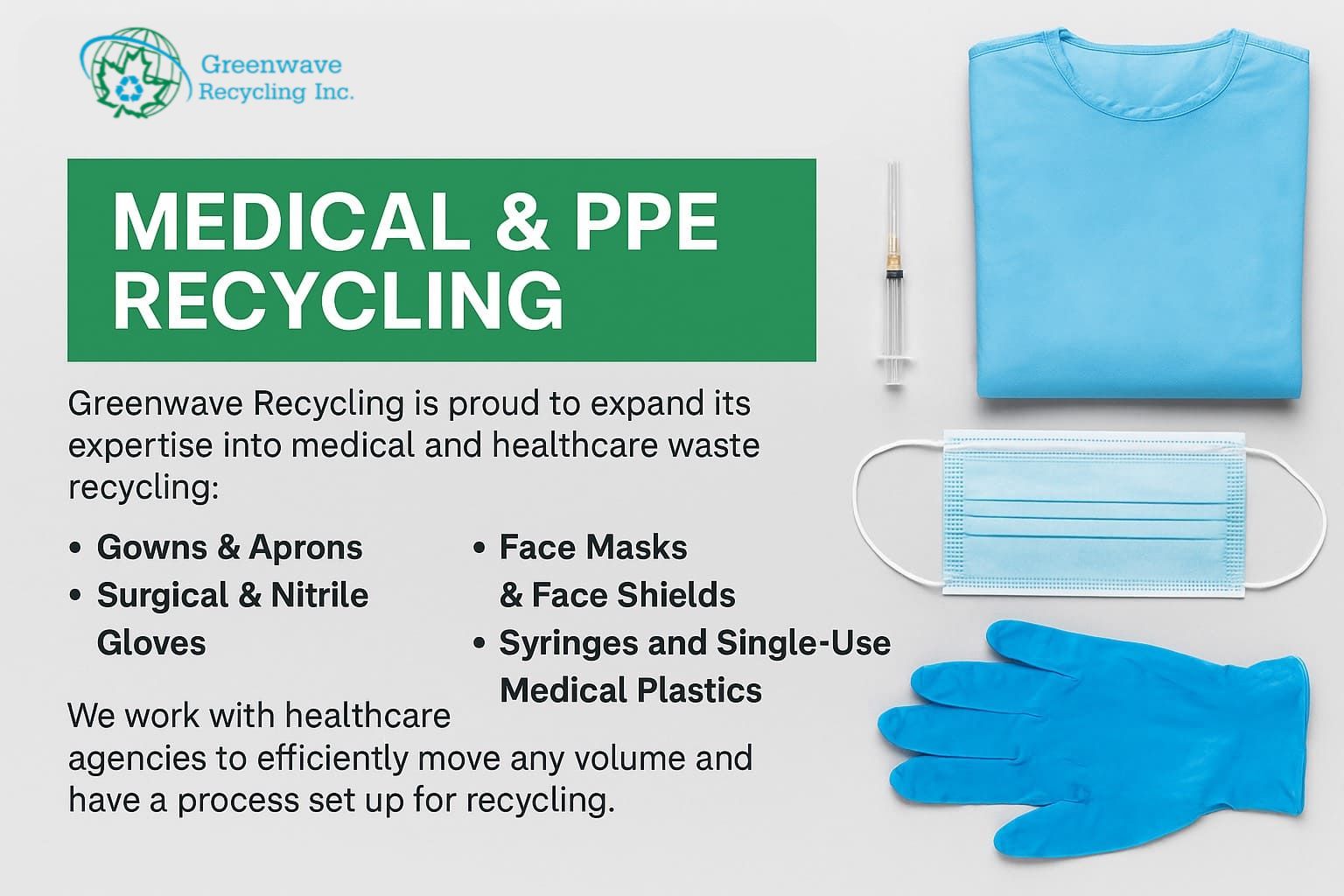The COVID-19 pandemic reshaped public health systems across the globe. In Canada, the mass adoption…

Zero waste recycling in industry is more than just a sustainability buzzword—it’s an operational and economic advantage. Canadian manufacturers, warehouses, and packaging companies are rapidly adopting zero waste models to minimize landfill contribution, reduce costs, and meet environmental regulations. Zero waste helps industries turn waste into a resource, aligning with Canada’s circular economy and ESG goals.
1. Cost Savings Through Waste Reduction
Reducing industrial waste means reducing disposal and raw material costs. By reusing scrap materials or implementing recycling systems for LDPE, HDPE, and other post-industrial plastics, companies can dramatically cut operational expenses.
Example: A Toronto-based food packaging company cut its disposal costs by 40% through in-house plastic recycling and reuse.
2. Improved Regulatory Compliance
Canada’s waste diversion policies, especially in provinces like British Columbia and Ontario, are tightening. Industries that embrace zero waste are better positioned to meet provincial and federal compliance standards and avoid penalties.
3. Enhanced Brand Image & ESG Impact
Sustainability is increasingly tied to investor trust and public perception. Zero waste practices contribute to strong ESG (Environmental, Social, and Governance) performance, helping businesses win contracts, investment, and customer loyalty.
4. Resource Optimization
Zero waste encourages better resource management—from raw materials to packaging. This reduces overproduction, promotes efficiency, and decreases the carbon footprint across the supply chain.
Looking to implement zero waste in your industrial facility? Contact us for a custom recycling and waste diversion plan tailored to your operation.
5. Contribution to the Circular Economy
By reprocessing materials instead of sending them to landfills, industrial zero waste models support Canada’s transition to a circular economy—where materials are reused, recycled, or repurposed.
6. Futureproofing Against Market Trends
Canadian industries are under growing pressure from consumers and regulators to demonstrate sustainable practices. Adopting zero waste early positions companies as leaders in a changing marketplace, especially in sectors like manufacturing, distribution, and logistics.
7. Employee Engagement and Innovation
Zero waste systems often involve employee training and input, leading to a culture of responsibility and innovation. Teams become proactive in identifying waste points and finding creative solutions.
Frequently Asked Questions
It’s a waste management strategy that eliminates landfill contribution by reusing, recycling, or repurposing all industrial waste materials.
By reducing waste disposal fees, optimizing material usage, and recovering resources like LDPE or HDPE plastics, businesses can cut costs significantly.
While not federally mandated, many provinces have strict waste diversion targets and encourage industrial zero waste adoption through incentives and regulation.
Manufacturing, packaging, food production, and logistics sectors see the greatest ROI from zero waste systems.
Zero waste boosts the environmental component of ESG by reducing carbon footprint, landfill impact, and improving compliance transparency.
Conclusion
Zero waste recycling in industry isn’t just environmentally responsible—it’s smart business. It offers economic benefits, regulatory alignment, and positions your brand as a sustainability leader in Canada’s evolving industrial landscape.




